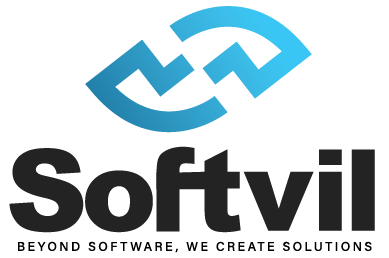Introduction
In the realm of modern business technology, SAP (Systems, Applications, and Products) stands as a pivotal force, revolutionizing how enterprises operate and thrive in an ever-evolving landscape. With its comprehensive suite of modules and cutting-edge technologies, SAP enables organizations to streamline processes, enhance productivity, and gain actionable insights across diverse functional areas. From finance and human resources to supply chain management and customer engagement, SAP’s influence permeates virtually every aspect of business operations.
This comprehensive guide aims to unravel the intricacies of the SAP ecosystem, offering readers a roadmap to mastery. It delves into the key modules that underpin SAP’s functionality, explores emerging technologies shaping its future, and outlines a strategic approach to skill development. Furthermore, this guide sheds light on the invaluable role of SAP consulting partners in guiding businesses through implementation and optimization journeys, providing vital SAP consulting services.
Whether you’re a seasoned SAP professional looking to stay ahead of the curve or a newcomer seeking to embark on a journey of learning and discovery, this guide serves as your compass in navigating the dynamic world of SAP. Join us as we explore the boundless possibilities and opportunities that SAP presents in driving organizational excellence and innovation.
Understanding SAP Modules

Overview of SAP’s Modular Structure
SAP’s modular structure organizes its software suite into distinct components, each designed to address specific business functions. This modular approach allows businesses to select and implement the modules most relevant to their operations, promoting flexibility and scalability. Whether an organization focuses on finance, human resources, supply chain management, or customer relationship management, SAP offers modules tailored to meet those needs.
Importance in Addressing Specific Business Functions
SAP modules are tailored to address the unique requirements of different business functions. For example, SAP ERP streamlines core processes like finance, procurement, and sales, ensuring data consistency and facilitating informed decision-making. Similarly, SAP SCM optimizes supply chain processes, improving efficiency and reducing costs. By leveraging SAP implementation services, organizations can effectively deploy these modules to meet their specific business objectives and drive growth.
Detailed Descriptions of Key SAP Modules
- SAP ERP (Enterprise Resource Planning): SAP ERP integrates essential business processes such as finance, procurement, manufacturing, and human resources. It provides a centralized platform for data management and facilitates cross-functional collaboration. SAP implementation services assist businesses in configuring and customizing SAP ERP to align with their unique workflows and requirements.
- S/4HANA: SAP S/4HANA is the next-generation ERP suite that leverages in-memory computing and real-time analytics to accelerate business processes. It simplifies data management and enables intelligent decision-making across the organization. SAP implementation services play a vital role in migrating businesses to S/4HANA, ensuring a seamless transition and maximizing the benefits of the new platform.
- ABAP (Advanced Business Application Programming): ABAP is SAP’s proprietary programming language used for customizing and extending SAP applications. It empowers developers to create bespoke functionalities and interfaces to meet specific business requirements. SAP implementation services provide expertise in ABAP development, helping businesses tailor SAP solutions to their unique needs.
- CRM (Customer Relationship Management): SAP CRM focuses on managing customer interactions throughout the entire lifecycle, from lead generation to post-sales support. It helps businesses deliver personalized experiences and build long-lasting relationships with customers. SAP implementation services assist organizations in configuring SAP CRM to effectively manage customer data and streamline sales and marketing processes.
- SCM (Supply Chain Management): SAP SCM optimizes supply chain processes, including demand planning, procurement, manufacturing, and logistics. It enhances visibility, agility, and collaboration across the supply chain network. SAP implementation services guide businesses in implementing SAP SCM modules, ensuring seamless integration with existing systems and maximizing supply chain efficiency.
- HCM/HR (Human Capital Management/Human Resources): SAP HCM/HR manages all aspects of human resources, including recruitment, payroll, training, and performance management. It helps organizations attract, develop, and retain top talent. SAP implementation services assist businesses in configuring SAP HCM/HR modules to streamline HR processes and enhance workforce management.
- SRM (Supplier Relationship Management): SAP SRM focuses on managing supplier relationships, streamlining procurement processes, and optimizing supplier performance. It enables organizations to negotiate better contracts and reduce procurement costs. SAP implementation services help businesses implement SAP SRM modules to improve supplier collaboration and enhance procurement efficiency.
- BI/BW (Business Intelligence/Business Warehouse): SAP BI/BW provides tools for data warehousing, reporting, and analytics. It empowers users to transform raw data into actionable insights, driving informed decision-making and strategic planning. SAP implementation services assist organizations in designing and implementing SAP BI/BW solutions to unlock the full potential of their data assets.
Examples of Streamlining Processes
For instance, SAP ERP streamlines financial processes by automating accounting tasks and providing real-time financial data. Similarly, SAP CRM enhances customer relationship management by centralizing customer data and facilitating personalized interactions. SAP SCM optimizes the supply chain by improving inventory management, demand forecasting, and order fulfillment processes. By leveraging SAP implementation services, organizations can ensure successful deployment of these modules and achieve tangible improvements in efficiency and productivity.
Emerging Technologies in SAP

Introduction to the Evolving Landscape of Technology in SAP
The landscape of SAP is continuously evolving, propelled by advancements in technology that redefine traditional processes and pave the way for digital transformation. In this dynamic environment, businesses are presented with unprecedented opportunities to leverage emerging technologies within the SAP ERP system to drive innovation and efficiency.
Key Emerging Technologies in SAP
- SAP Leonardo: SAP Leonardo embodies a comprehensive digital innovation system integrating IoT (Internet of Things), machine learning, blockchain, and analytics. This amalgamation enables businesses to reimagine processes, optimize operations, and create innovative business models within the SAP ERP process framework.
- SAP Cloud Platform: The SAP Cloud Platform serves as a versatile platform-as-a-service (PaaS), empowering businesses to develop, deploy, and manage applications seamlessly. With its scalability and agility, it facilitates the integration of emerging technologies into SAP ERP processes, enabling rapid innovation and adaptation to changing market demands.
- AI and Machine Learning: Integration of artificial intelligence (AI) and machine learning capabilities within the SAP ERP process landscape revolutionizes decision-making and enhances operational efficiency. These technologies automate mundane tasks, optimize processes, and provide invaluable insights, empowering businesses to make data-driven decisions and stay competitive in dynamic markets.
- SAP Analytics Cloud: SAP Analytics Cloud is a cloud-based solution offering advanced business intelligence, augmented analytics, and planning capabilities. By leveraging real-time data insights, businesses can optimize SAP ERP processes, improve resource allocation, and drive strategic decision-making across the organization.
Contribution to Digital Transformation and Innovation
The adoption of these emerging technologies within SAP ERP processes catalyzes digital transformation, enabling businesses to adapt and thrive in today’s competitive landscape. By harnessing the power of SAP Leonardo, organizations can innovate processes, products, and services to meet evolving customer needs and market dynamics. The SAP Cloud Platform facilitates rapid application development and integration, empowering businesses to streamline operations and drive innovation across the SAP ERP ecosystem. AI and machine learning technologies revolutionize SAP ERP processes by automating tasks, optimizing resource utilization, and predicting future trends, thereby enhancing operational efficiency and competitiveness. SAP Analytics Cloud empowers businesses to gain actionable insights from vast datasets, enabling informed decision-making and strategic planning within the SAP ERP framework. By embracing these emerging technologies, businesses can unlock new opportunities, drive growth, and achieve sustainable success in an increasingly digital world.
Skill Development Roadmap
Acquiring a diverse skill set is paramount for success in navigating the complexities of SAP, requiring a strategic approach to development. Here’s a comprehensive roadmap for skill enhancement:

Importance of Acquiring a Diverse Skill Set
In the rapidly evolving landscape of SAP ERP, possessing a diverse skill set is essential for professionals to remain competitive and adaptable. Mastery across various domains within SAP not only enhances individual expertise but also ensures versatility in addressing diverse business challenges.
Step-by-Step Roadmap for Skill Development
- Foundational Knowledge: Begin by gaining a solid understanding of SAP fundamentals, including its architecture, modules, and terminology. Online courses, tutorials, and SAP documentation serve as valuable resources for acquiring foundational knowledge.
- Module Specialization: Choose a specific SAP module aligned with your career aspirations and interests. Dive deep into its functionalities, business processes, and best practices through specialized training programs and hands-on experience.
- Technical Proficiency: Develop technical skills relevant to your chosen module, such as programming languages (e.g., ABAP), database management, and data modeling. Practical experience and participation in coding projects contribute significantly to technical proficiency.
- Business Process Understanding: Gain insights into the business processes supported by your chosen SAP module. Understand how technology aligns with organizational objectives, enhances operational efficiency, and contributes to strategic decision-making.
- Emerging Technologies: Stay abreast of emerging technologies within the SAP ecosystem, such as SAP Leonardo, AI, and machine learning. Explore specialized courses and resources to expand your skill set and remain ahead of industry trends.
- Certification: Consider obtaining SAP certifications to validate your expertise and enhance credibility. SAP offers a range of certifications tailored to specific modules, technologies, and roles, providing formal recognition of proficiency.
- Practical Experience: Apply your skills in real-world scenarios by collaborating on SAP projects, contributing to implementation efforts, and seeking internships or job opportunities in SAP-related roles. Practical experience enriches learning and reinforces theoretical knowledge.
- Continuous Learning: Embrace a mindset of continuous learning to stay updated with evolving SAP technologies and industry best practices. Engage with the SAP community, attend workshops, webinars, and conferences, and pursue advanced learning opportunities to remain at the forefront of SAP innovation.
By following this comprehensive roadmap for skill development in SAP, professionals can enhance their expertise, contribute effectively to organizational success, and thrive in the dynamic world of enterprise technology.
SAP Consulting Partners

Introduction to the Role of SAP Consulting Partners
SAP consulting companies play a pivotal role in assisting businesses with the implementation, customization, and optimization of SAP solutions. These partners bring specialized expertise and industry knowledge to guide organizations through the complexities of SAP projects, ensuring successful outcomes and maximizing the value of SAP investments.
Overview of Key Consulting Partners
The SAP ecosystem boasts a diverse array of consulting companies, ranging from major global firms to specialized boutique agencies. These SAP consulting companies offer a wide range of services, including strategy consulting, system integration, project management, and support services, catering to the unique needs of businesses across industries and regions.
Discussion on the Benefits of Partnering with SAP Consulting Firms
Collaborating with SAP consulting firms provides businesses with several advantages, including access to specialized expertise, industry best practices, and comprehensive support throughout the implementation lifecycle. By leveraging the knowledge and experience of consulting partners, organizations can streamline processes, enhance efficiency, and drive innovation with SAP solutions.
Considerations for Businesses When Selecting an SAP Consulting Partner
When choosing an SAP consulting partner, businesses should consider various factors, such as the partner’s expertise in specific SAP modules, industry experience, reputation, and track record of successful implementations. It’s essential to select a consulting company that aligns with the organization’s objectives and values, ensuring a collaborative and successful partnership.
Examples of Successful Collaborations
Numerous examples illustrate successful collaborations between businesses and SAP consulting companies, showcasing tangible outcomes and value delivered. These collaborations encompass a wide range of projects, from large-scale ERP implementations to specialized initiatives such as SAP S/4HANA migrations, CRM deployments, and supply chain optimizations. Through effective partnership and collaboration, businesses have achieved significant improvements in operational efficiency, cost savings, and competitive advantage.
By engaging with SAP consulting companies, businesses can leverage their expertise and support to navigate SAP projects effectively, drive business transformation, and achieve long-term success in today’s competitive landscape.
Conclusion
In conclusion, SAP consulting companies play an indispensable role in guiding businesses through the complexities of SAP projects, offering specialized expertise and industry insights. Partnering with these firms provides organizations with access to invaluable resources and support throughout the implementation lifecycle, ultimately driving successful outcomes and maximizing the value of SAP investments. By carefully selecting the right SAP consulting partner and fostering a collaborative relationship, businesses can navigate SAP projects with confidence, innovate with agility, and achieve sustainable growth in today’s dynamic business environment.
FAQs
SAP consulting companies offer a range of services, including strategy consulting, system integration, project management, and support services for SAP solutions.
When selecting an SAP consulting partner, consider factors such as expertise in specific SAP modules, industry experience, reputation, and successful track record of implementations.
Partnering with SAP consulting firms provides access to specialized expertise, industry best practices, and comprehensive support throughout the implementation lifecycle, maximizing the value of SAP investments.
SAP consulting companies can assist with various projects, including ERP implementations, SAP S/4HANA migrations, CRM deployments, supply chain optimizations, and more.
By leveraging their expertise and support, SAP consulting companies help businesses streamline processes, enhance efficiency, drive innovation, and achieve long-term success with SAP solutions.
About Softvil
Softvil Technologies is a leading IT consulting firm renowned for its expertise in SAP solutions. With a proven track record of delivering innovative and customized SAP implementations, Softvil empowers businesses to optimize their operations and achieve sustainable growth. Specializing in a wide range of SAP modules, including ERP, CRM, SCM, and BI/BW, Softvil offers comprehensive solutions tailored to meet the unique needs of each client. Backed by a team of highly skilled professionals and a commitment to excellence, Softvil Technologies is dedicated to driving success for businesses through cutting-edge SAP expertise and transformative digital solutions.

